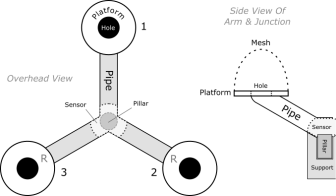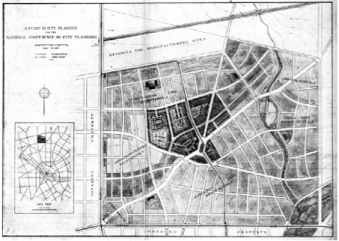The next E-Intentionality meeting will be April 15th in Pevensey 2A2 from 12:00-12:50. The speaker will be Adrian Downey, on the topic: “Radical Sensorimotor Enactivism- A Rapproachment of Cognitive and E-Approaches to Conscious Perception (via Predictive Processing)”. Abstract:
Where conscious perception is concerned, enactive and ecological approaches (E-approaches) are considered to be dichotomous with cognitivism. I argue that my own theory of conscious perception, which I label Radical Sensorimotor Enactivism (RSE), has the conceptual and empirical resources to combine these traditionally opposed views into a unified framework for the study of conscious perception. In this paper I explain how, and why, the cognitivist theory of Predictive Processing (PP) plays an essential role in this unification. Although PP is often taken to provide an overall conceptual framework for the study of mind, I argue that RSE (not PP) provides such a framework, whilst noting that PP forms an important sub-set of the RSE approach.
RSE is an anti-representational version of the sensorimotor enactive theory of perceptual consciousness. Sensorimotor enactivism takes organisms to come into direct perceptual contact with the environment when they possess sensorimotor knowledge. They become conscious of these perceptual states when the organism attends to them, because attention is taken to be both necessary and sufficient for consciousness. I argue that attention should be construed adverbially [Mole, 2011]. Adverbial theories of attention are generally thought to cohere with empirical theories of attention known as ‘biased competition’. I explain that RSE fits best with the ‘biased affordance competition’ framework [Anderson, 2014] because this framework (unlike ‘biased competition’) does not require representation. Having provided a conceptual clarification of attention which does not require representation, we thus arrive at RSE.
PP explains perception as constituted by expectancies as to how sensory stimulation will be modified with movement, and these expectancies are taken to be brain-based. It thus matches exactly the description of sensorimotor knowledge, and so should be taken to provide an operationalisation of it [Seth, 2014]. Furthermore, PP can be used to explain attention (and so, consciousness) because PP is compatible with Anderson’s framework [Clark, 2015], and it is mathematically compatible with competition theories [Spratling, 2008]. Therefore, PP can be used to study and explain the brain’s role in conscious perception on the RSE framework. PP does not, however, on its own explain consciousness, because RSE takes brain, body, and environment to be constitutive of conscious perception.
The biggest benefit of endorsing RSE is that it combines the key aspects of both ecological and cognitivist approaches to conscious perception. E-approaches are generally considered to provide good phenomenological accounts of conscious perception which respect the fact that conscious organisms are embodied and embedded in a world. They are, however, thought to provide only descriptive (as opposed to mechanistic) explanations of consciousness, and ones which ignore the undoubtedly key role played by the brain. Cognitivist theories are thought to provide such explanations, but they do so at the expense of phenomenological adequacy, and they largely ignore embodiment and embeddedness. In combining both approaches, RSE avails of the positives of both, and so provides a promising overall conceptual framework for the study of conscious perception.
Audio (.mp3, 6.6MB, discussion only)
Upcoming dates:
- April 15: Pevensey 2A2 (Adrian Downey)
- April 29: Pevensey 2A2 (Simon Bowes TBC)
 The next E-Intentionality seminar will be held Friday, April 29th from 12:00 to 12:50 in Pevensey 1 1B8 (please note change of venue). Simon McGregor will speak on “The physical mandate for folk psychology”; abstract:
The next E-Intentionality seminar will be held Friday, April 29th from 12:00 to 12:50 in Pevensey 1 1B8 (please note change of venue). Simon McGregor will speak on “The physical mandate for folk psychology”; abstract:
